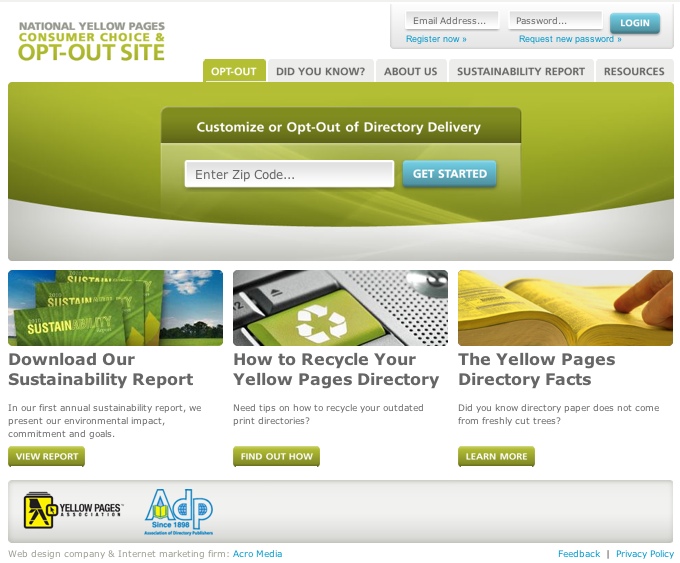Update: Looks like there is likely to be a lot more local action coming Google’s way soon.
Original Article: There’s no question that Google has been putting a lot of focus on local results lately – from the release of products like Google Places and Hotpot (the company’s personalized and social recommendation engine) to an increasing amount of queries simply retrieving local results – often above other organic listings.
We had an extensive conversation about this with industry veteran Bruce Clay at PubCon a couple months ago, and webmasters and SEOs have been stressing about it all over the web. In fact, just today, one consulting firm ran a press release talking about the competitive advantages local business owners have as a result of recent changes with Google.
Do local businesses have the upper hand in Google? Tell us what you think.
Consultant (and founder of the firm, LocalMarketingProfitFaucet says there’s a new type of Google Gold Rush. He’s referring to getting the prime listings from Google Places, which Google will often place at the top of the SERPs.
"This change is having an immediate and positive impact on the local businesses shown in these Page 1 listings," says Adams. "The Internet-savvy business owners who understand how to take advantage of this are generating new customers for next-to-nothing. Meanwhile, a surprising number are still oblivious to the significance of this change. In fact, Google has revealed that only a tiny percentage of local businesses have even claimed their Google Places listing, let alone optimize it."
"From our experience," Adams continues, "Google has always given preferential treatment to unique, multimedia content that is kept fresh and up to date. And of course, stay away from any black hat tactics that try to game the system. Google always catches up to these shenanigans. When they do, your listing could be banned with no warning and no second chances."
If local businesses have the competitive advantage now, then some non-local businesses are wondering how they’re supposed to compete with that. After all, the far reach of the web has historically been an attractive reason to start a business in the first place.
In a new video uploaded to Google’s Webmaster YouTube channel, Matt Cutts (head of the company’s webspam team) addressed a user-submitted question: "In a search environment where local is becoming increasingly important (and more full on the SERP), how can an out of town company compete with the local based (and locally housed) competition without lying to show up in these results?"
Cutts responded by saying, "The entire page of web rankings is there that out of town people can compete on, so the idea of the local universal results is to show local businesses, so in some sense, there’s not really a way where if you’re out of town, you can sort of show up (within our guidelines), and show up as a local business."
"Now, if you are a mobile business – so for example, maybe you’re a plumber, and you get into your pickup truck, and you drive around in a particular area – so if you’re a mobile business, then in Google Places you can specify a service area, which is roughly 50 miles around where you’re based, but that’s only if you actually have some base of operations there," he continues. "You can’t be based in Topeka and claim that you have a service area in Wyoming if you have no physical presence there."
"I think that that’s a good idea. You do want to have local businesses show up, and I know that the team has really been paying a lot of attention to try and improve Maps quality, make it more robust, check on the authenticity of businesses, and that will only continue," adds Cutts.
In other words, if you’re not a local business, there’s nothing much you can do about getting the kind of visibility the local businesses are getting, should Google deem the user’s query worthy of the local results. I might suggest finding queries related to your business that aren’t returning local results and giving these some more attention, and of course there’s always AdWords.
If there’s a particular geographic market that you’re after, but you’re not based there, you may want to consider setting up shop. In the end, Google is just going to do what it thinks will help users. Whether or not you buy that is up to you, but they’re not going to deviate from that stance, and if it encourages more people to buy AdWords ads, then so be it.
You can expect there to be a great amount of focus continued to be placed on local. The company even moved former VP of Search products, Marissa Mayer, to this area of focus, and with mobile becoming such a big part of the way people search, local is by default going to be a bigger part of what people are actually looking for.
Has Google’s increased focus on local hurt your search rankings and visibility? Let us know in the comments.


 But he talked about scenarios such as traveling to Chicago and getting some tips on things to do based on where you’re at and your past experiences in another city like New York. Real, practical uses. He says he’s "really bullish" on the local merchant-related stuff Foursquare is doing.
But he talked about scenarios such as traveling to Chicago and getting some tips on things to do based on where you’re at and your past experiences in another city like New York. Real, practical uses. He says he’s "really bullish" on the local merchant-related stuff Foursquare is doing.